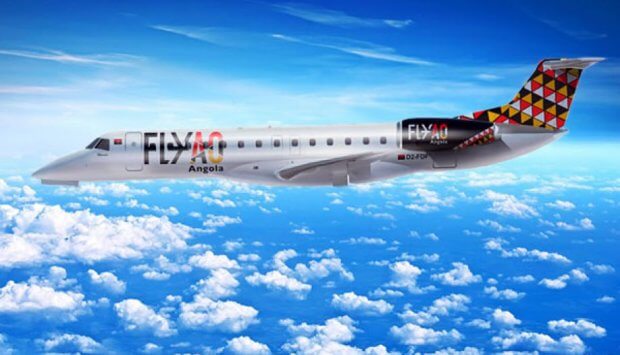State Dominance in Angola’s Aviation Sector
Angola’s aviation industry is navigating a critical phase where state control continues to shape its development. The CEO of Fly Angola, the nation’s foremost private airline since 2018, has raised concerns about how government dominance over airlines, airports, and associated services limits growth opportunities for private businesses. This persistent grip on the sector means private companies face considerable hurdles, especially when competing against state-backed giants like TAAG Angola Airlines and Sonair.
The Landscape of Aviation in Angola
Despite Fly Angola’s efforts to foster private investment, the overwhelming presence of government-supported carriers creates an uneven playing field. State airlines benefit from priority access to key infrastructure, subsidies, and regulatory conditions that skew market competition, making it tough for private operators to flourish. The entire value chain — from air operations to ground handling — remains under tight government control, reducing incentives for private capital and innovation.
Challenges for Private Airlines
In this environment, regulatory obstacles and limited access to lucrative flight routes discourage entrepreneurial ventures. Fly Angola has shown impressive resilience by upgrading its fleet and obtaining a local Air Operator’s Certificate during the COVID-19 slowdown, a strategic move signaling dedication to international operational standards. However, economic pressures and insufficient market support have forced it to pull back from domestic flights recently.
Key Areas for Reform
The CEO’s vision focuses on three crucial reforms: 투명성, liberalisation및 공정한 경쟁. He calls for a regulatory framework that encourages private investment, fosters innovation, and ensures equitable market conditions for both public and private operators. Such reforms are seen as essential for unlocking Angola’s full aviation potential—modernizing fleets, broadening route networks, and enhancing overall service quality.
Learning from Regional Examples
Analogous reforms in other African countries have demonstrated that opening up the aviation market leads to better connectivity, competitive fares, and more flight options for consumers. Angola’s current situation—with heavy state involvement—places limitations on private airlines’ ability to raise capital, access profitable flight routes, and maintain operational efficiency.
Fly Angola’s Experience Reflects Wider Industry Challenges
While Fly Angola has introduced new charter services and attempted to expand interprovincial flights, the absence of a supportive policy, coupled with delayed payments for state-subsidised passengers, has contributed to ongoing cash flow problems. These difficulties make sustained growth difficult in a market dominated by government-supported players.
The Future of Angola’s Aviation
The desired future landscape presents an open, efficient, and collaborative aviation sector where public and private stakeholders work in partnership. Reducing bureaucratic barriers, streamlining regulations, and encouraging competition are expected not only to stimulate airline growth but also to foster economic development, create jobs, and improve travel options for Angolan consumers.
Implications for Wider Travel and Tourism
For travel professionals and passengers in Southern Africa, Angola’s experience offers a valuable case study. The balance between government supervision and private sector dynamism is pivotal in building an innovative, resilient air transport market. As regional travel and cross-border connectivity grow more important, Angola’s ability to attract private players will be essential to shaping the region’s aviation future.
택시 및 환승 서비스에 미치는 영향
When aviation markets thrive due to healthy competition and service expansion, the entire travel ecosystem benefits—including ground transport like taxis and transfer services. More flights and better schedules translate to increased passenger flow at airports, creating higher demand for reliable transfers. Platforms like GetTransfer.com can connect travelers with precise and transparent transport options, displaying car make, model, driver ratings, and fares upfront—critical when airports become busier and travelers seek seamless journeys beyond the flight.
| Challenge | Impact on Private Aviation | Potential Benefit of Reform |
|---|---|---|
| State control of airlines and infrastructure | Limits private market entry and innovation | Encourages private investment and competitiveness |
| Regulatory barriers and limited route access | Discourages entrepreneurship and growth | Liberalised access boosts route network and diversity |
| Preferential subsidies for state carriers | Creates financial imbalance and cash flow issues | Fair competition fosters healthier market dynamics |
Highlights and Realities
While thoughtful reform could revolutionize Angola’s aviation industry by opening doors to private capital and competition, nothing compares to the firsthand experience of individual travelers and operators navigating this evolving market. On GetTransfer.com, users gain practical advantages by hiring cars with drivers from verified providers at fair prices, ensuring no surprise costs or service disappointments. The platform’s extensive vehicle options and additional services empower travelers to make informed choices—whether for airport pickup, city transfers, or customized rides.
차량 서비스 예약하기 와 함께 GetTransfer.com to enjoy transparent, affordable, and reliable transfer services tailored to your travel needs.
Looking Ahead for Angola and Beyond
The reforms called for by Fly Angola’s leadership could influence the broader African aviation landscape by promoting more investor-friendly policies and competition. Although not a global seismic shift, these changes are still significant locally and regionally. GetTransfer remains committed to supporting travelers by staying updated on such developments and helping users access dependable transfer services worldwide. Start planning your next adventure and secure your worldwide transfer with GetTransfer, ensuring peace of mind no matter how aviation markets adapt.
결론
To sum up, Angola’s aviation sector is at a pivotal moment where state dominance limits private airline growth and market potential. Addressing transparency, regulatory fairness, and competition is key to unleashing broader economic benefits and improved air travel connectivity. As this sector modernizes, the ripple effect will enhance transport services on the ground, including taxis and airport transfers. Online platforms like GetTransfer.com offer travelers a user-friendly way to book exact car services with detailed driver and vehicle information. This not only simplifies travel planning but ensures affordable, efficient rides tailored to individual needs, perfectly complementing improvements in air travel.

 Angola’s Aviation Sector Faces Roadblocks as Fly Angola CEO Urges Reforms for Private Investment Growth">
Angola’s Aviation Sector Faces Roadblocks as Fly Angola CEO Urges Reforms for Private Investment Growth">
댓글